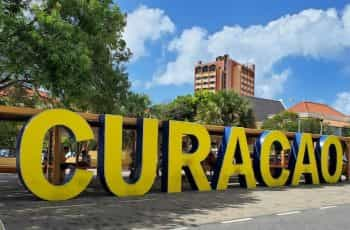The Verdict Is In: 80% of iGaming Ads Blocked in Spain
The new year has already seen a number of regulations and proposals from two left-leaning parties in the Spanish government regarding iGaming. Last week, the latest in the series, which will effectively shut down 80% of online gaming advertisement. According to Consumer Affairs Minister Alberto Garzón, the regulation comes from significant “social alarm” in Spain due to the vast popularity and previous lack of regulation in the country.

The latest in a series of regulations from Spain’s coalition government has just come in, cracking down on online gambling advertisement. ©Mati Angulo/Pexels
The New Regulation Comes As No Surprise
The latest crackdown from Spain’s Ministry of Consumer Affairs is just providing specifics, as Minister Alberto Garzón announced several weeks ago that the ministry would be significantly limiting advertising capabilities for iGaming providers.
At the time, Garzón had announced that advertisers in Spain could only show their advertisements within a four-hour window, set late at night so as not to show during the day to Spain’s most vulnerable population: minors.
Around the time of the statement, Garzón met with two leading gaming organizations, CeJuego and JDigital, confirming the seriousness of the government’s plan to regulate gaming advertising. In the weeks following the meeting, Garzón planned to meet with other industry leaders, not just from private companies, but even from state-run organizations, to discuss the proposed advertising regulations.
But even Garzón’s gaming advertising regulations came after a month and a half of intense gaming regulation from Spain’s coalition government, a unified front between left-leaning parties Partido Socialista Obrero Español (Spanish Socialist Workers’ Party, or PSOE) and Unidos Podemos.
At the close of 2019, these two now-collaborating groups submitted an extensive document outlining their proposed regulations to come in the new year.
And they didn’t disappoint: just a few weeks into 2020, the coalition group passed a six-part series of regulations on the gaming industry, outlining specific regulations intended to treat the risks of gambling addiction as comparable to that of tobacco.
As such, the government determined that gaming establishments must be located a mandatory distance from local schools, and that outside such brick-and-mortar establishments, signs need to be posted warning patrons that gambling has potentially addictive effects.
Additionally, these establishments will be closed until 10pm, and they will also have to pay administration fees to Spain’s government.
Garzón’s Latest Decision Says Vast Majority of iGaming Ads Banned
In a decision made just last week, Alberto Garzón followed up on the advertising regulations of just a few weeks ago to announce that the new laws — set to be completed and enacted summer 2020 — will render an estimated 80% of iGaming advertising illegal.
In his statement, Garzón explained the legislation — and, likely, all of the legislations which have preceded it in the short few months that have passed in this year — by saying that it is in response to the gambling industry’s “impact on public health”.
And he’s not kidding in how seriously he takes it!
The new regulations curbing up to 80% of iGaming advertising consist of 100 specific restrictions, intended to seriously limit the outreach of such advertising, particularly towards what many see as continuing to be among the most at-risk to developing unchecked gambling behavior: children and teenagers.
What Do Garzón’s New 100 Rules Decide?
In the 100-part regulations intended to curb gambling advertisement, Garzón’s Ministry of Consumer Affairs legislates not just the timing of advertising, which was previously announced — the four-hour window beginning at 1am.
The exception to this rule will be that gaming providers can advertise their services during sporting matches, but only after 8pm.
Additionally, gaming ads, including those aired during sports games, will be prohibited from encouraging players to “bet now,” or similarly worded encouragements to easily access particularly online gambling.
Bonus offers for pre-existing customers to specific gambling sites made through click-through advertising will be capped at €100, and bonuses for new players will be outlawed in click-through advertisements, including promotions that allow for free bets.
Similarly, and interestingly, these ads will not be allowed to suggest that gambling, with the exception of poker, is a game of skill and not luck. Similarly, these ads will not be allowed to suggest that gambling can solve an individual’s financial problems, or glamorize the financial success some may access through gambling.
Garzón’s new rules will further limit the influence of gaming advertising in the sports realm, deciding that gaming companies can continue to sponsor sports teams, but can be represented only through their logo or trademark. These logos will not be represented or available on child-sized sports uniforms.
In an anticipated move, online gambling advertisements will be illegal in public venues accessible to minors, as well as in public outdoor spaces, like billboards and bus stops.
Here, local governments will be able to splinter off from the federal regulation to determine if brick-and-mortar gambling options, such as local bingo halls or casinos, will be allowed in such public venues like billboards and bus stops.
One of the stricter limitations is that gambling can no longer be endorsed by celebrities. The individuals in question who could be called “celebrities” will be so determined by the Ministry of Consumer Affairs, and will likely refer to those with influence in the world of entertainment or sports.
In a strange loophole, however, gambling advertisements will be permitted in all print media and through news websites deemed “legitimate.”
These are actually just a hint of the many, many rules outlined in Garzón’s new stipulations. But one thing is for sure: gambling advertising in Spain is about to change, big-time!



